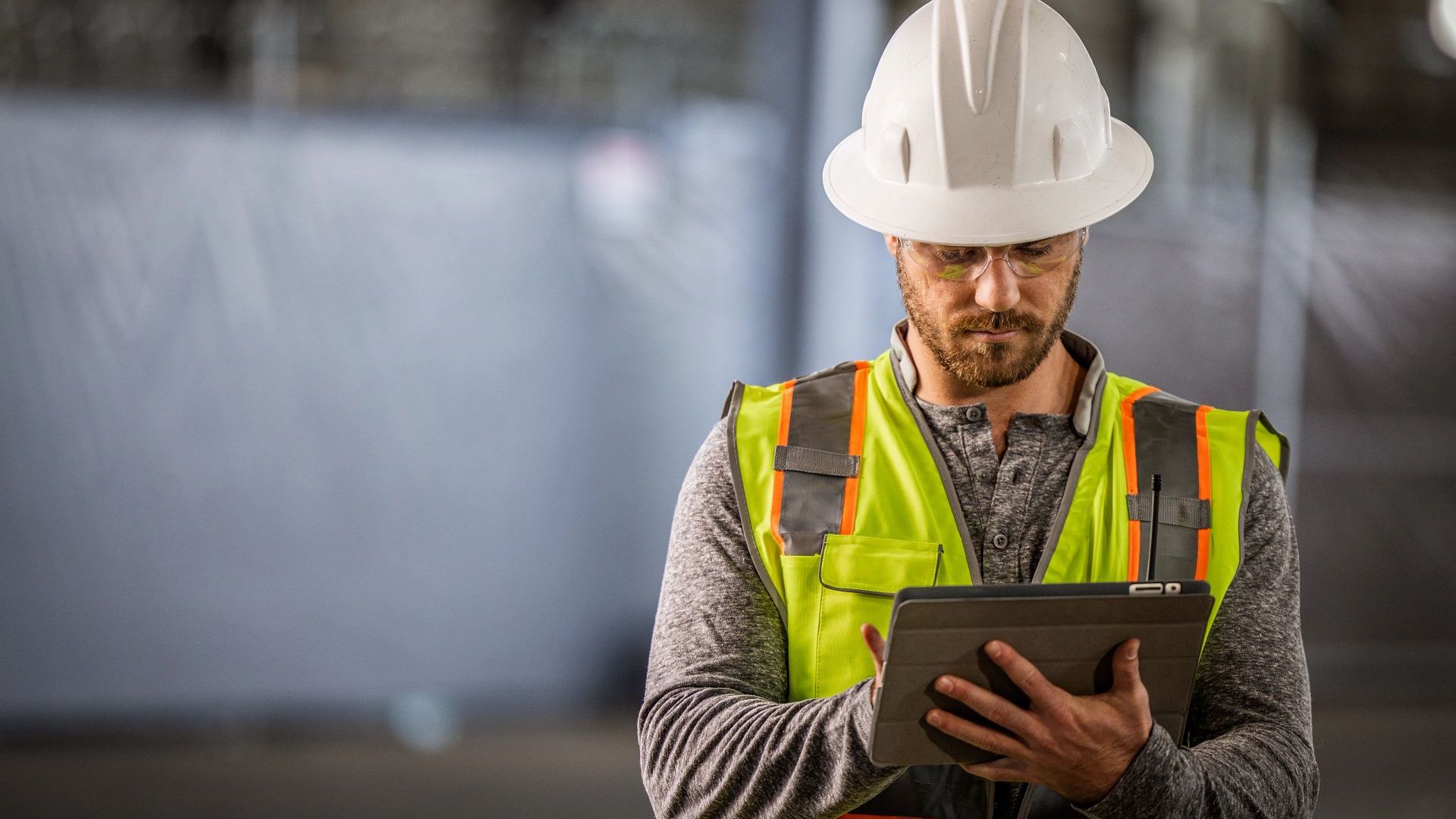Help us improve your experience. See content that is made for you!
See how IBM increased their efficiency by up to 30%!

Help us improve your experience. See content that is made for you!
See how IBM increased their efficiency by up to 30%!


How many decisions do you think you make over the course of a typical day? A hundred? A thousand?
A lot.
Research by Cornell University estimates that the average adult makes roughly 35,000 remotely conscious choices every day.
From what to wear and what to eat (around 226 decisions alone), to where to go and even send a text to next, you make scores of decisions daily.
And these activities are just decisions you make in your personal life – they don’t even consider your professional decision-making responsibilities.
If you work in construction, the complexity and impact of your choices multiply exponentially. While no study quantifies the number of decisions that go into building your average construction project, we can safely assume it's an extraordinary amount.
One of our customers, Erin Saiki, Superintendent from DPR, puts it best:
“Decision-making is a very, very big part of my role. I’m probably making anywhere between 500, 600, and 700 decisions a day from the minute I walk in, to the minute I leave to when I go home. Some of those decisions are little ones you won’t think twice of, while others are life-changing safety-related decisions. Decision-making can’t be something that you’re doing thoughtlessly or carelessly because it could be a difference in how safely our people are working and if someone gets to go home at night. So, there’s a lot of really tough decisions we make, as well as huge monetary decisions. I never thought I would be making decisions that could be collectively worth $10,000, $100,000, $1M in a day.”
In short, making the right call in a construction project is critical. It can improve efficiency, enhance safety, and lead to profitable projects and resilient businesses.
Conversely, poor decision-making can result in varying levels of adverse outcomes: a project manager misses dinner with their family because of an urgent issue in the field or a business sees lower annual profits thanks to unexpected rework. In the worst-case scenario, an avoidable injury or fatality occurs because of an oversight.
No one wants to make the wrong call.
Whether you’re in the office, field, or trailer, when you’re under pressure, understaffed, and possibly overworked, it’s crucial to adopt strategies and tools to support safer and more sustainable decision-making.
I talked about these strategies and tools at AU 2023 during the Construction Industry Forum, and you can watch my talk here.
The complexity of decision-making in construction stems from managing a steep list of requirements across different building stages and the sheer number of stakeholders involved. On mid-sized to larger projects, there can be hundreds of team members at any given time, each with their own priorities and concerns.
For better or worse, the choices made by individuals can impact the success of everyone involved. The biggest mistakes happen when decisions are made unilaterally, especially without collaboration and understanding the tradeoffs associated with each choice made.
For example, a project manager may approve a material section without consulting the design, leading to performance shortcomings down the line. Or a trade worker could decide to quickly complete a task without coordinating with other specialty contractors, leading to a clash between trades.
Another big culprit contributing to poor decision-making is “bad” data – inaccurate, inaccessible, or untimely information. Autodesk research with FMI shows that 30% of construction professionals indicated that more than half of their project data is bad and results in poor decision-making more than 50% of the time. Bad data is estimated to cost the industry $88.69 billion in rework annually.
These dynamics can lead to a chain reaction of mistakes at critical decision points, breaking down predictability in the building process.
Everyone on a project, from a construction company’s superintendent to its CIO, needs access to reliable information from the right people at the right time – to make critical decisions early, together, and with (good) data.
In construction, decisions made as early in the process as possible can have the most significant impact on a project’s cost and schedule. Once field work is executed, each issue becomes dramatically more expensive to fix than it would be to remediate during the design and planning phases.
Early-stage decisions set the foundation for the entire project, so it's critical make informed choices during design and planning.
Every choice you make throughout the project affects the job and the people involved. Both short and long-term tradeoffs need to be understood and taken into account. It’s essential to bring everyone to the table and ensure the right team members are part of the decision-making process.
When teams are equipped with a shared digital environment, you break down communication silos and pave the way for collaborative decision-making. This not only keeps everyone involved in critical decisions – it also helps teams move faster and be more productive.
Most importantly, the quality of your decisions stems from the quality of your data. If you make a call based on inaccurate and incomplete information, you're more likely to run into errors, delays, and poor outcomes.
Equipping teams with the right data at the right time is vital. But a strong data strategy doesn't just happen. It takes conscious effort, a commitment to data quality, and a robust system for managing information.
At Autodesk, our goal goes beyond providing construction technology – we want to be a true partner in your success. We do this by connecting your entire project lifecycle, surfacing actionable insights, and empowering your team to be confident decision-makers. Here are a few recent developments in Autodesk Construction Cloud designed to do just that:
Better, earlier access. Products like Autodesk Takeoff and new tools like Correspondence and the expansion of our construction-ready model capabilities in Autodesk Construction Cloud help you coordinate, estimate, and build more efficiently—right from the start.
Collaboration with control. Tools like Autodesk Bridge facilitate the balance between collaboration and control by allowing users to share information with configurable permissions and automations. Additionally, the release of Work Planning capabilities (in beta) empowers project managers to quickly adjust plans and inform teams in response to unexpected changes.
Surfaced intelligence. Autodesk empowers decision-making by providing capabilities that prioritize tasks, assess tradeoffs validate assumptions. Construction IQ, AI-powered functionality in Autodesk Construction Cloud, is already being used on over 12,000 projects to analyze data and provide critical insights about project risk, saving our customers time by augmenting everyday decisions.
Learn more about these exciting, developments for Autodesk AI in construction here.
Of course, our customer experience is integral to the strength and growth of our product portfolio. When you purchase Autodesk products, we provide our customers with more than just a product by offering strategic planning, learning portals, coaching, and other resources to ensure their progress.
Better, more confident decision-making paves the way for better ways of working, better partnerships, and let’s not forget, a better bottom line.
At Autodesk, we’re committed to helping transform the way teams work and protecting the people and outcomes you care about most. We're your partner in improving everyday decisions earlier, safer, and more sustainably.

May we collect and use your data?
Learn more about the Third Party Services we use and our Privacy Statement.May we collect and use your data to tailor your experience?
Explore the benefits of a customized experience by managing your privacy settings for this site or visit our Privacy Statement to learn more about your options.